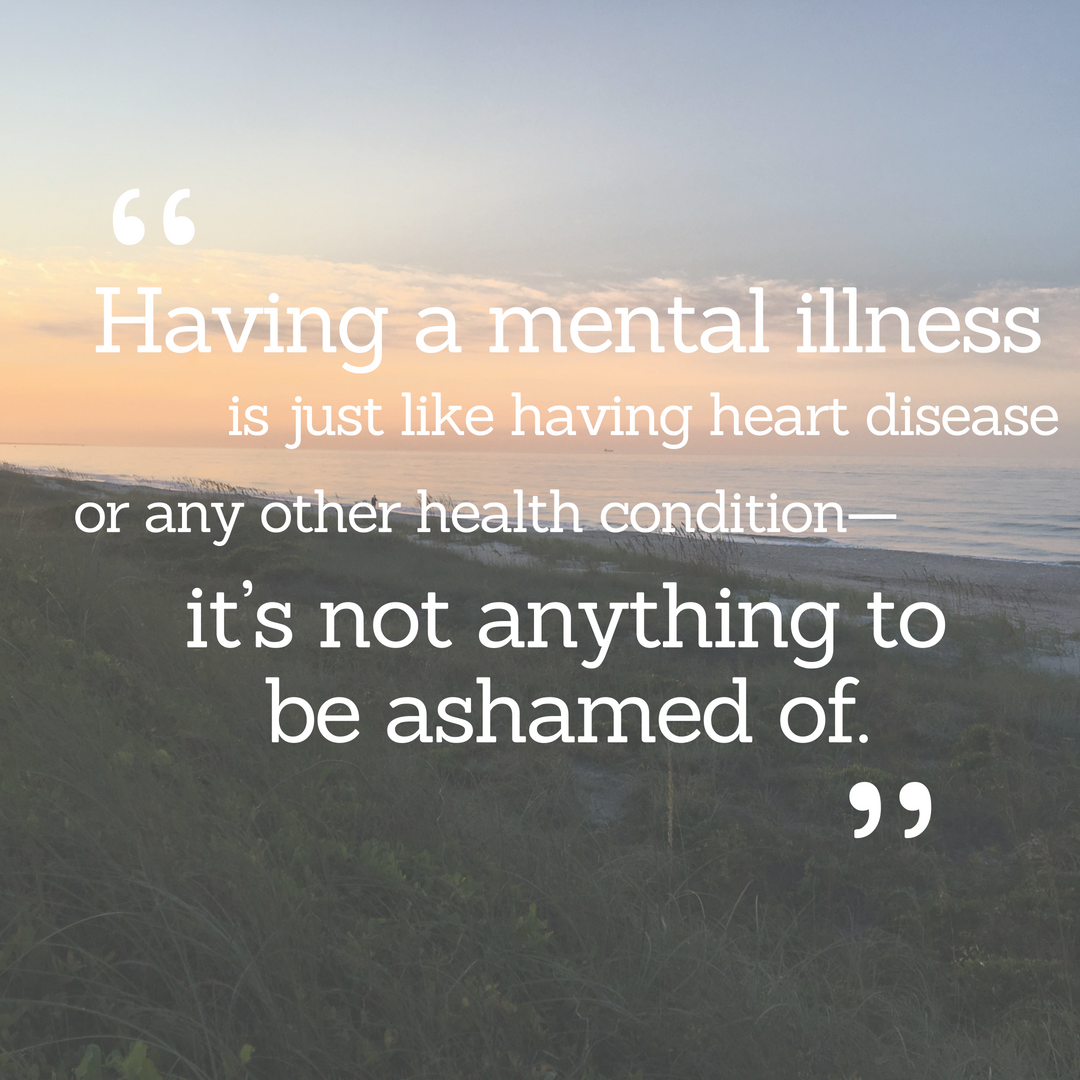July 31, 2018
By Michelle Dickinson-Moravek

When you love someone with bipolar disorder, life can be very unpredictable. In my case, it was my mother who struggled with this illness. She was in and out of the hospital half a dozen times throughout my childhood. She was often so depressed that she couldn’t get out of bed and would cry uncontrollably for hours.
Other times she’d have what I now know were manic periods, which were kind of like taking a trip to Disney World: She would crank up the music and start singing and dancing—then, suddenly, she’d be running around the house naked. I referred to these ups and downs as “the roller coaster.” She could also be emotionally and physically abusive, slapping me and my brother and sister, telling us that we were garbage and imposing all kinds of arbitrary rules.
There were times when I’d have to stay home from school because my father had to work, and she was too fragile to be home by herself. And when I was in school, instead of paying attention to my teachers, I’d spend all day worrying about how my mom was doing—plus, I was weighed down with keeping the secret that I had a “crazy” mother.
It wasn’t until I was in high school that I understood my mother had a mental illness. Still, it was tough for me to be sympathetic. Instead, I felt angry. So as soon as I was old enough, I began getting jobs in restaurants to have an excuse to spend time away from home. I also figured that if I was going to be working so hard all the time, I might as well get paid for it and receive some appreciation. Taking care of my mother—and constantly strategizing with my father about getting her a new doctor or on a new medication—seemed like a thankless job in comparison.
When I was 18, I moved out of the house and went to go live with a boyfriend. Then at 23, I got married early to another guy who turned out to be a male version of my mother. He didn’t have bipolar disorder, but he was routinely depressed and abusive, and I found myself constantly trying to fix him—just like I’d try to fix my mother.
It wasn’t until my mid-20s, when I divorced and started going to therapy, that I began to heal and learned that it was OK to put some distance between me and my mother, even though I loved her.
And then, one day at work, I got a call from my father that my mother had died suddenly of a heart attack. It was only when she was gone, following a lot of self-exploration, that I was able to start having real compassion for what life with a mental illness must have been like for her.
I put myself through college and graduate school, while working in the pharmaceutical industry. Over that time, I realized that I could—and should—tell my story. In 2013, I submitted a proposal to an internal program that encourages employees to speak on various topics of their choice in a TED Talk-style format. I wanted to mine my experience growing up with a bipolar mother. I let myself get raw and vulnerable up on stage, and afterward, colleagues came up to me and said, “Wow—you really exposed yourself.” But I knew that, by being me, I was creating a safe space for others to talk about their own issues around mental health.
The feedback I got was so positive that I thought: If I can do this, I can write a book. I spent four years working on my memoir, “Breaking Into My Life: Growing Up With a Bipolar Parent and My Battle to Reclaim Myself“, which was published in February 2018.
The goal was not just to tell the story of my childhood, but to help people understand what it’s like to love someone with a mental illness. There’s been too much silence around this issue, too much hush-hush, too much stigma. I want to cause conversations to happen, so people realize that having a mental illness is just like having heart disease or any other health condition—it’s not anything to be ashamed of. The more we talk about it, the more people will get the help they need for loved ones or themselves. And, tools like the app 18percent that facilitate immediate peer to peer support can make all the difference for those struggling.
The difference in openness around mental illness today, compared to when I was growing up, is incredible. A short time ago a peer reached out and said, “I’m 61, I’m bipolar and I never understood the impact that my disease might be having on others. I bought five copies of your book—one for everyone in my family. Thank you.”
Reactions like that are why I want to tell the world about my experience—the fact that my little story could change someone’s perspective on mental illness, well, that’s huge.
Note: This personal story was prepared by its author in his or her personal capacity. The opinions expressed are the author’s own and do not reflect the views of the National Alliance on Mental Illness.
We’re always accepting submissions to the NAMI Blog! We feature the latest research, stories of recovery, ways to end stigma and strategies for living well with mental illness. Most importantly: We feature your voices.
LEARN MORENAMI HelpLine is available M-F, 10 a.m. – 10 p.m. ET. Call 800-950-6264,
text “NAMI” to 62640, or email. In a crisis, call or text 988 (24/7).